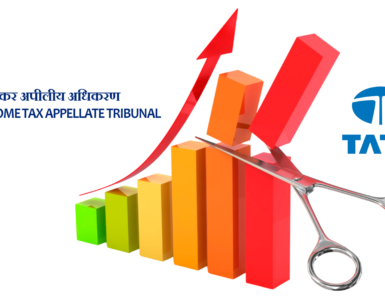The Insolvency and Bankruptcy Code 2016 aims at reviving companies that are going for liquidation. If reviving the company is not possible, the code will enable to liquidate the company in a judicial and rational manner so that it serves the interests of all stakeholders and the public at large. That is is because liquidation is not the ultimatum objective of the Code as it leads to sufferings on the part of all the connected parties of the company like employees, suppliers, creditors, customers etc. when the company’s business closes down.
Slump sale instead of liquidation
Instead of the liquidation leading to closing the business, if entire assets could be sold in the form of slump sale. This will result in the business continuity and ultimately would save the interest of all the connected parties. This concern is already envisaged in the drafting of the language of Regulation 32 of the Insolvency & Bankruptcy Board of India (Liquidation Process) Regulations, 2016 as against the provisions of Section 33 (7) of the Code which treats liquidation order as a notice of discharge to officers, employees and workmen.
However, in the matter of Gujarat NRE Coke Ltd., the Kolkata bench of NCLT upheld the concern raised by employees and workmen going to lose their jobs by virtue of liquidation of business, if ordered, and therefrom the concept ‘Liquidation as a going concern’ came into picture.
Gujarat NRE Coke matter
In this matter, the company named Gujarat NRE Coke Ltd. is going for liquidation. The company has its plants at Gujarat and Karnataka employing 1,178 people including workmen on its roll, who submitted their resolution plan which was not accepted by the Resolution Professional and the Committee of Creditors on account of delayed submission. In fact, the employees of the company have made three representations before the NCLT with the following appeals: 1) They want that their employment should not be terminated. 2)They sought direction that the company should be liquidated as a going concern. 3) They want their resolution plan to be considered.
All the employees including workmen of the company have made representation before the NCLT underlining that by closing down the business of the company will affect the livelihood of its workmen along with their families and also the other employees, suppliers, vendors, job workers, contractors totalling about 10,000 people. The remarkable submission of the employees was of reference to the provisions of Regulation 32 of the Insolvency & Bankruptcy Board of India (Liquidation Process) Regulations, 2016 which provides for slump sale of assets permitting sale of the entire business of the company including all its assets and liabilities as a going concern.
This clears that the Insolvency law is also permitting liquidation as a going concern if it is going to be beneficial for all the stakeholders. If the assets are sold in the piecemeal, there would hardly be any possibility of continuation of business and if business stopped, it would lead to unemployment of the company’s employees, sufferings of the workmen’s families, loss of business of the suppliers, vendors. This will disturb the structure of the economy which is not certainly intended by the regulators.
Conclusion
Though Section 33(7) states about discharge of all the stakeholders, there is need to interpret this section in harmony with the Regulation 32 which provides for slump sale of assets and liabilities. It is the duty of the Resolution Professional and the authorities under the Code to avoid piecemeal liquidation as far as possible in the best interest of the society for which slump sale would be one of the best tool to maintain continuity of the business. This is so because, if attempt is made to find out a purchaser ready to acquire the entire business, practically there will not be any side effect on the part of that organisation’s employees, vendors, customers, contractors and all other third parties apart from change of ownership. This business revival process will further strengthen the economy in all respects. That way it can be said that this provision of slump sale provided by the said Regulation 32 is nothing but a gateway made available by the Code to widen the perspective of the Code. That is why in this case of Gujarat NRE Coke Ltd, this code was referred as a socially beneficial legislation.
However, at the same time, it is also important to note that this tool of slump sale of assets and properties should not be used randomly rather to be explored only after giving reasonable opportunity of being heard to all the parties including employees and after examining it really in the best interest of all the stakeholders. If selling of individual assets is commercially more beneficial option and in the best interest of all these stakeholders, then there will not be any need of opting of slump sale.
Further, there will also be need of taking into consideration time aspect which will be required to identify such a suitable acquirer for slump sale, as for this, one should not compromise with the existing procedures of the law. Accordingly, the Supreme Court in Allahabad Bank v. ARC Holding case, held that in the absence of any credible material, the direction to sell the company is not sustainable and this option of slump sale is to be explored only in the extraordinary circumstances. Further, with this intention, NCLT, in this case, offered a limited period of three months to conclude the transaction of slump sale which if not happened, would lead to liquidation as per the regular procedure provided in Chapter III of the Liquidation process provided under the Code.
At the same time, the Resolution professional also needs to understand up to which extent criteria for submission of a resolution plan to be applied so as to enable stakeholders like employees to submit their resolution plan to avoid discontinuity of the business.




